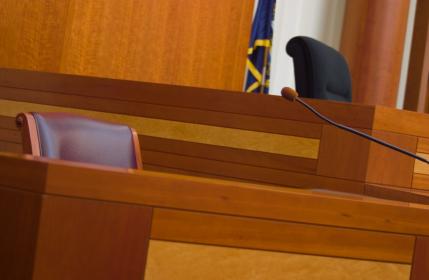
Earlier this year, the Ninth Circuit decided against the right to counsel for immigrant children facing deportation. This was not the first time the Ninth Circuit had considered this question. In fact, advocates have fought hard to prove the obvious: indigent immigrant children who face deportation should have an attorney by their side.
From JEFM to CJLG:* the prolonged fight of unrepresented children
Nearly two years ago, the Ninth Circuit ruled in JEFM v. Lynch that it lacked jurisdiction to hear the claim of a class of unrepresented immigrant children. Back then, the ruling was based on a procedural requirement that immigrants must exhaust administrative remedies before appealing to federal courts. Even in dismissing the case, the Ninth Circuit recognized that facing deportation as an unrepresented child is an “extremely difficult situation.”
The Court left a small opening for future litigants: next time an unrepresented child could bring the issue back to the Court’s attention—so long as this child first went through the different stages of immigration appeal first.
This is no small feat for an unrepresented child. It means that the child would have to (1) lose before the immigration judge while unrepresented, (2) go through the appeal before the Board of Immigration Appeals, (3) petition for review before a federal courts of appeal, and (4) have such petition granted. Only then, the Ninth Circuit predicted, would the child have the proper procedural posture to bring the issue of right to counsel again before the federal court.
Against all odds, CJLG was that unrepresented child. CJLG fled his home in San Pedro Sula, Honduras after suffering life-threatening gang violence. Though CJLG fled Honduras with his mother, immigration authorities separated them upon arrival. CJLG then sought asylum alone, and without counsel, while a federal attorney advocated for his deportation.
Unsurprisingly, CJLG lost. He was not able to show that he fit in a “particular social group” or that he would be persecuted “on account of” his membership to this group—requirements that, as our Pro Bono partners can attest, are complex even for seasoned attorneys. Rather than recognize the elephant in the room, the Ninth Circuit found that CJLG was not entitled to an attorney as a matter of due process.
Access to counsel changes children’s lives
The Ninth Circuit’s decision defies common sense. How can we expect indigent children to fight against deportation without counsel? Every day, CAIR meets with immigrant children in detention. These children are far from home. Instead of family, they are surrounded by strangers telling them to obey rules in a language they don’t understand. Increasingly, children face prolonged detention even when they have family with whom they could reunify.
The children we serve, though incredibly resilient, should not have to fight their cases alone. As a recent report in the DC region showed, having an attorney can double or quadruple an adult’s chances of winning relief from deportation. The impact is nearly quintupled in the case of children, who have about a 10% chance of prevailing alone unless they are represented by counsel. Children with strong asylum claims give up every day because they don’t have attorneys by their side.
CAIR Coalition provides legal screenings to all the children we meet in detention centers across Maryland and Virginia. But our primary source of funding does not permit us to represent every child we encounter. Explaining that to a detained child, who already has to navigate a broken system, is nothing short of heartbreaking. Eddy,** whom we met this past fall, was one of those children who fell outside of our funding capacity.
When we met Eddy, he told us that he was in immigration detention because the government wrongfully accused him of being a gang member. Eddy vehemently denied any gang ties, but found himself in an odd predicament. Suddenly, he was away from his family, detained, and had to argue against a government attorney who presented “evidence” that he was in a gang. How could Eddy fight back alone?
Thankfully, our Detained Children’s team fought hard on Eddy’s behalf and proved that the government’s evidence was neither reliable nor sufficient. Had CAIR not stretched our resources thin to represent Eddy, Eddy would still be detained today.
Contrary to the Ninth Circuit, we know that children cannot have a fair day in court without counsel by their side. Eddy’s case is one of many where we made an exception, but we cannot do this alone. We rely on our donors and Pro Bono partners to broaden our impact on children’s lives.
* Initials represent the child who is the class representative (JEFM) or the plaintiff (CJLG) in each case.
**Name changed to preserve confidentiality.
